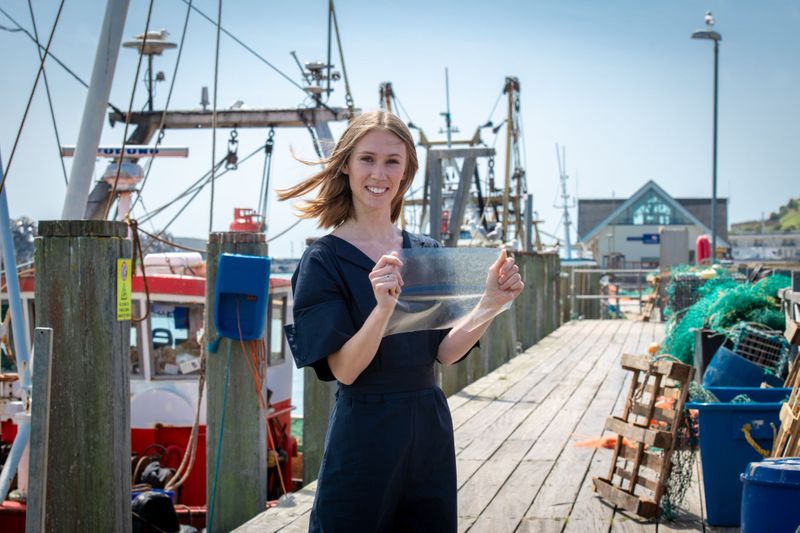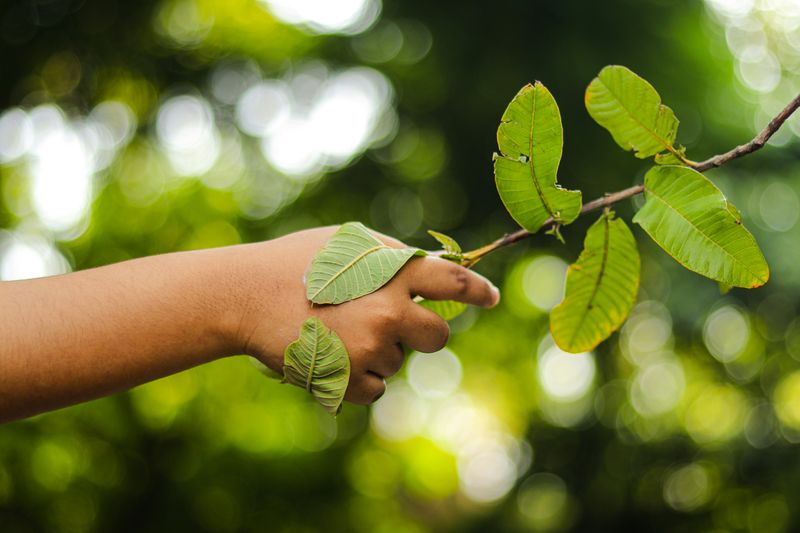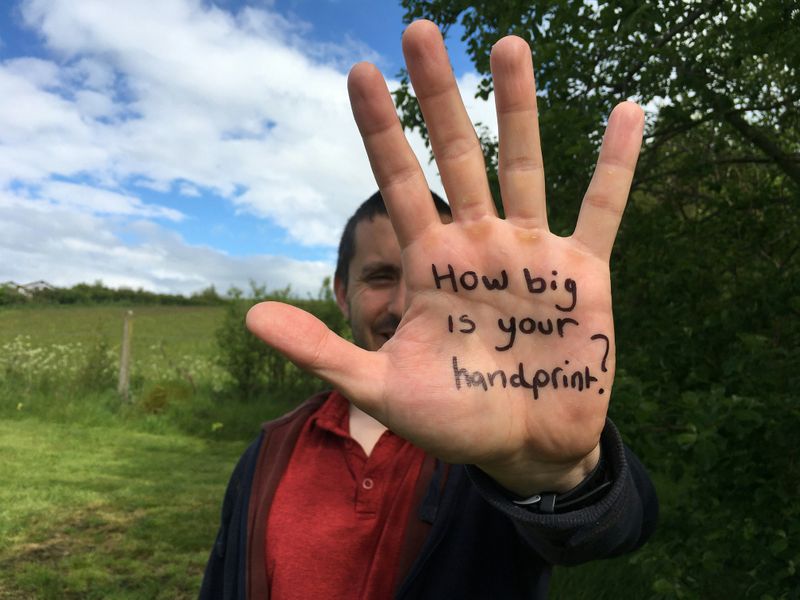Did you think that an environmental engineering degree only leads to lab work? 🧪
Think again.
Meet Lucy Hughes, who used her environmental knowledge to turn fish waste into MarinaTex, a biodegradable plastic that can replace single-use packaging. 🌊✨
 Image courtesy of the James Dyson Foundation
Image courtesy of the James Dyson Foundation
Her innovation began as a student project that won her the James Dyson Award for a creative approach to sustainability.
If you want to be part of innovative environmental solutions like Lucy's, consider different career paths across many fields.
What Is Environmental Engineering? 🧭
Environmental engineering is about using science and engineering to help the planet. It's all about making the environment cleaner, safer, and healthier for people and nature.
What do environmental engineers do?
Clean water and air: Making sure we have safe drinking water and fresh air.
Manage waste: Recycling and reducing food and material waste to protect the environment.
Build sustainable cities and buildings: Energy-efficient homes, offices, and infrastructure.
Fight climate change: Designing solutions to reduce pollution and protect nature.
The video below explains some basics of the job in different fields:
Career Directions 🌟
Consider these environmental engineering jobs after you get your degree:
Trash Buster ♻️
Example: Solid Waste & Recycling Engineer
What they do: Design recycling programs, reduce waste, and turn trash into useful resources.
Skills that help: Creative thinking to design solutions, communication to educate communities
Data Detective 📊
Example: Environmental Data Analyst
What they do: Use technology to track pollution, water, and energy usage, and provide insights for better environmental decisions.
Skills that help: Digital & data skills, critical thinking to interpret and act on information.
Climate Guardian 🌍
Example: Climate Change & CO₂ Analyst
What they do: Measure greenhouse gas emissions, track carbon footprints, and design strategies to reduce CO₂.
Skills that help: Data analysis, modeling, and systems thinking to understand and reduce emissions.
Water Hero 💧
Example: Water Resource Engineer
What they do: Ensure everyone has clean water by monitoring rivers and maintaining healthy water systems.
Skills that help: Data & digital skills to track water quality, problem-solving to manage resources efficiently.

To make a real impact in green careers, you need more than technical knowledge. Soft Skills like communicating ideas, creative problem-solving, and using data help your ideas succeed in the real world.
The World Economic Forum highlights that these cross-skills are growing in importance for green jobs.
 Photo by Mimi Thian on Unsplash
Photo by Mimi Thian on UnsplashWhat Excites You Most? 🌿
When tackling an environmental issue, like pollution, waste, or climate change, what excites you most? Whatever your inclination, there are several roles you can consider:
Designing innovative systems to solve problems: sustainability design engineer or eco-city planner
Gathering and analyzing data to understand root causes: environmental data analyst or climate change analyst
Educating communities and influencing policy: green business leader, eco-filmmaker, or community educator
Working in the field to observe, test, and improve natural ecosystems: water resource engineer, ecological restoration engineer, or field researcher
Who Should Apply? 👩🔬
Meet four recent environmental engineering graduates each has a clear interest.
Khedija: loves designing innovative systems to solve problems.
Hector: enjoys gathering and analyzing data to find root causes.
Amina: prefers community outreach and teaching practical solutions.
Samira: likes field work (testing, observing, and improving natural systems).
 Photo by Albert Vincent Wu on Unsplash
Photo by Albert Vincent Wu on UnsplashQuiz
A water resource engineer job has just been posted by a local company. This role focuses on system design to optimize energy use in pumping and treatment. Which graduate's interests best match this role?
Any Career Can Be Green! 🌟
Curious about how to "green-ify" a role? Check out these ideas:
Sustainable fashion designer: Create clothing that's stylish and planet-friendly. 👗
Green tech developer: Build apps, games, or devices that reduce waste or save energy. 💻
Eco-filmmaker/Content creator: Make videos or campaigns that inspire people to care about the planet. 🎬
Sustainable food innovator: Reduce food waste and create eco-friendly meals or packaging. 🍔
Green business leader: Help companies adopt sustainable practices and products. 💼
Environmental artist/designer: Use art to highlight climate issues and inspire change.
 Photo by gaf clickz on Unsplash
Photo by gaf clickz on UnsplashImagine using art to save the planet! That's what Chris Jordan does. He creates powerful visuals from environmental data, showing how even creative careers can make a big impact.
Tips for Any Role:
No matter what the role, these tips will help you build your application and profile.
Volunteer in local eco-projects or youth programs. 🌱
Take free online courses on communication, data, or sustainability. 💻
Apply for internships with NGOs or green businesses. 🏢
Start your own mini project like designing a recycling campaign or app. 🎨
Take Action
 Photo by Mike Edwards on Unsplash
Photo by Mike Edwards on UnsplashReady to build a greener future? Apply your degree in environmental engineering. 🌱
Your feedback matters to us.
This Byte helped me better understand the topic.
